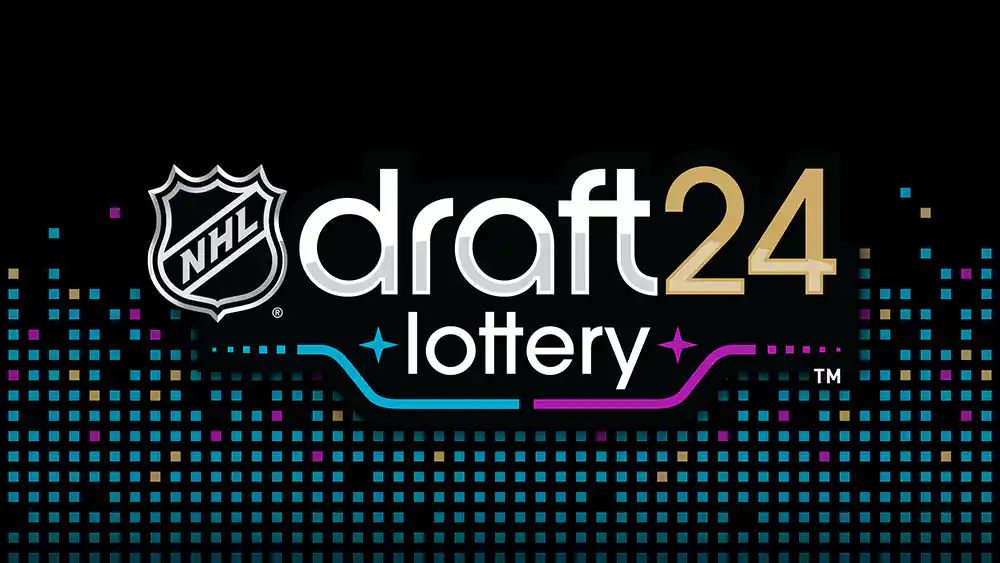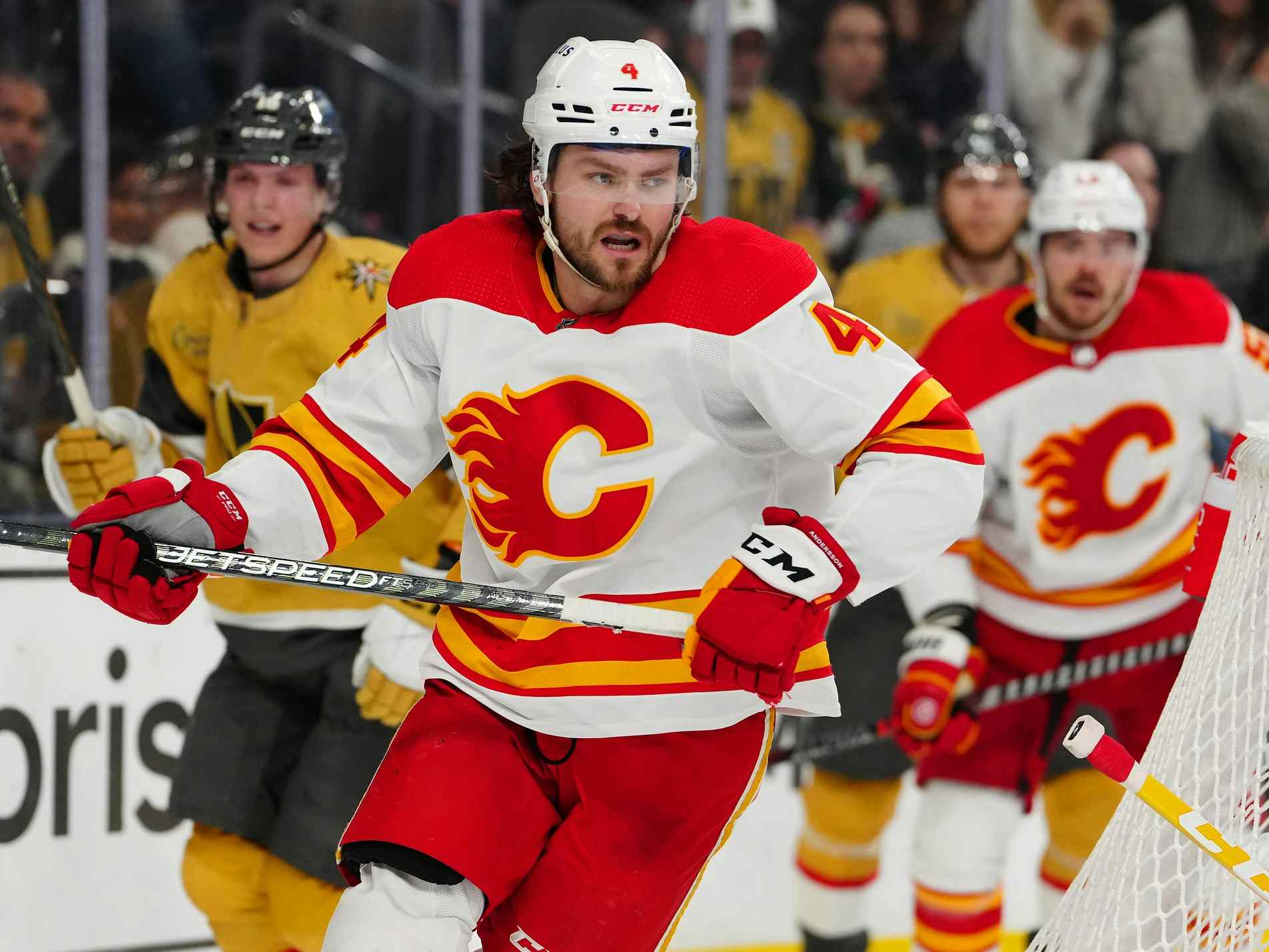2015-16 Reasonable Expectations: Kris Russell
By Ari Yanover
8 years agoIt wasn’t that long ago Kris Russell was more of an afterthought than anything else. He’d found a regular role with the Columbus Blue Jackets as a bottom pairing defenceman; only to be traded to the St. Louis Blues and play even less, failing to be a regular in the lineup.
He was subsequently traded to the Flames for a fifth round pick for the next year’s draft: not nothing, but pretty close to it.
Then he became a top four defenceman in Calgary, and is now best known as the guy who will block everything and anything.
There’s so much to love about Russell. He’s gritty, he’s tenacious, he gets to wear an alternate’s ‘A’ and nobody would ever question why. He grew up a Flames fan! He has a bull named Red Mile! That’s awesome!
And for someone who typically doesn’t score much, he can score some really, really timely goals. Down 4-0 to the Ottawa Senators, he scored two of the Flames’ comeback goals to push it to a shootout – including the game-tying goal with just over two minutes to go. And who’s ever going to forget the Flames’ first game-winning playoff goal after so many years?
It all builds up into such a great narrative. Russell is the epitome of the blue collar player who shows up in the absolute biggest moments. It’s easy to see why he’s a favourite of both the fanbase, coaching staff, and organization as a whole: he’s pretty much everything you want out of the Calgary Flames.
Here’s something to not like about him: it isn’t just that he set a league record in blocked shots with 283, it’s that he did that while having the best zone starts out of all regular Flames defencemen.

There’s nothing wrong with being sheltered, but there’s a lot wrong when you’re put as far away from your net as often as possible, only to end up having to block so, so many shots. If you have the best relative offensive zone starts on your entire team, and you set a league record for blocking shots, something is inherently wrong.
The play was going against Russell the entire season. That’s something that’s going to have to be corrected, whether it’s by giving him a lighter load or a better partner.
Expectations
Whatever your thoughts on Russell and his skill set may be, there’s one thing we can all agree on: the addition of Dougie Hamilton has bumped him down the depth chart. Whether that means Russell is still in the Flames’ top four remains to be seen, and I suspect it’ll be dependent on pairings.
Bob Hartley likes having lefties and righties together. Mark Giordano and T.J. Brodie are both lefties, but they both work so, so well together (and apparently, Brodie prefers playing on the right). If they stay together, that puts Hamilton – a righty – on the second pairing. Russell, being the next best lefty available, would almost certainly be his partner.
If Giordano and Brodie are split up, though, then that means Hamilton is with one of them on the top pairing – and that means the main guy on the second pairing is a lefty. Do you evaluate Russell to be that much better than Dennis Wideman, and have your second pairing consist of two lefties? Or do you keep the left-right theme going, thereby putting Wideman on the second pairing, and leaving Russell as your fifth defenceman?
Here’s a look at each season in Russell’s career to date:

What quickly becomes evident is his best possession years were in 2007-08 and 2008-09: his very first years in the league. He was with the Blue Jackets then, and a heavily sheltered player.
Next most evident is just how much he’s played for the Flames. The 2013-14 and 2014-15 circles are the biggest of the bunch because the size of the circles measures ice time, and he’s played more on average for the Flames than he ever has in his career before.
What’s interesting is his 2014-15 season was played right around the same circumstances as his 2009-10 and 2010-11 circles, but there are two major differences: his 2014-15 season had him on the ice so much more, and it had him being a negative possession player. Compare this to 2009-11, when he was playing for the Blue Jackets, and had a better performance.
Of course, team possession plays a role in this. The 2014-15 Flames had a CF of 44.5%, while the 2009-10 Blue Jackets were a 47.7% CF team, and the 2010-11 Jackets had a CF of 50.9%. There’s a big difference between the 2010-11 Jackets and 2014-15 Flames, but the 2009-10 Jackets weren’t exactly what you’d call great.
What this seems to overall indicate is: lighten Russell’s workload, and he’ll perform better. So should Russell end up on the bottom pairing next season – and mind, he played about 18 minutes a game on average for those good years in Columbus, so his minutes don’t even have to be reduced by that much – he could end up having one of his better performances.
If Russell stays in the top four, though, his partner will likely be Hamilton, not Wideman. And Hamilton is a much better partner. Compare Wideman and Hamilton’s WOWY numbers with their fellow defenceman over the past three seasons (minimum 70 minutes at even strength played together, players listed from ascending to descending in terms of shared ice time):


There are three players who were better off without Wideman beside them: Giordano, Chris Butler, and Shane O’Brien. (In fairness to Wideman, we should note that he didn’t spend nearly as much time with the latter two.) Meanwhile, everyone benefited from playing with Hamilton (Andrew Ference in particular, although this can partially be attributed to a skewed difference in zone starts).
The impact Wideman had on his partners ultimately comes to a weighted difference of roughly -0.05% CF, while Hamilton’s impact is +0.58% CF. The differences aren’t massive, but Hamilton is undeniably better.
So even if Russell’s minutes aren’t reduced, and he’s still asked to perform in a top four role, he should be able to have an improved year simply by virtue of playing with a better partner.
The addition of Hamilton should result in Russell having one of his best seasons to date: either by reducing his ice time, by giving him a better partner with which to work, or both. In 2014-15, Russell was overwhelmed; in 2015-16, he shouldn’t be.
Recent articles from Ari Yanover





